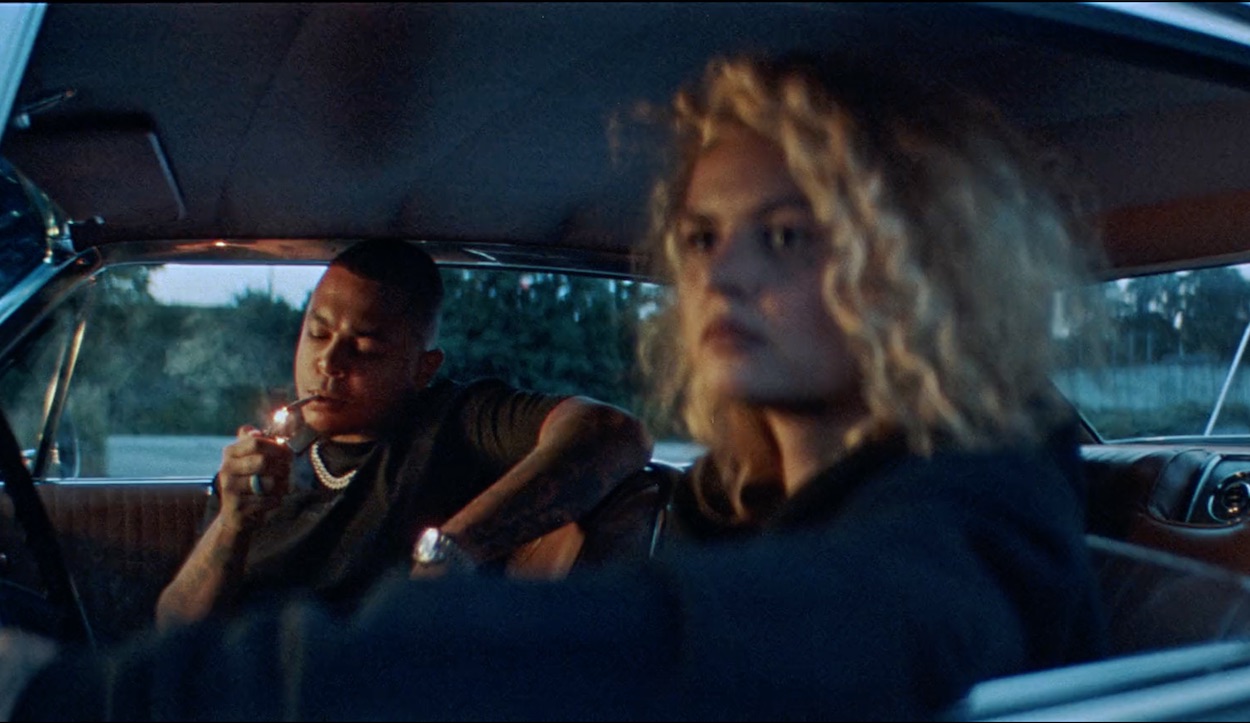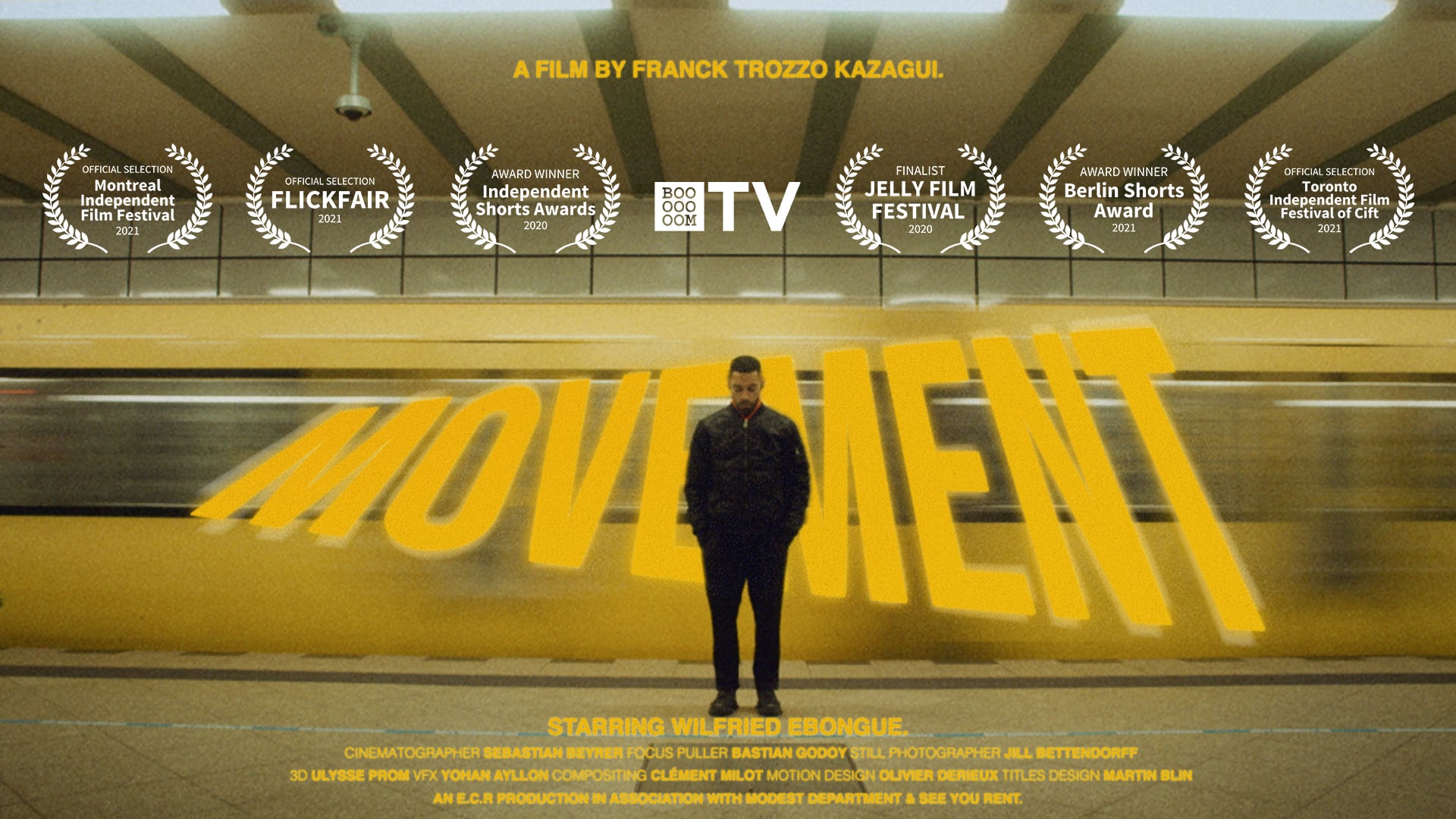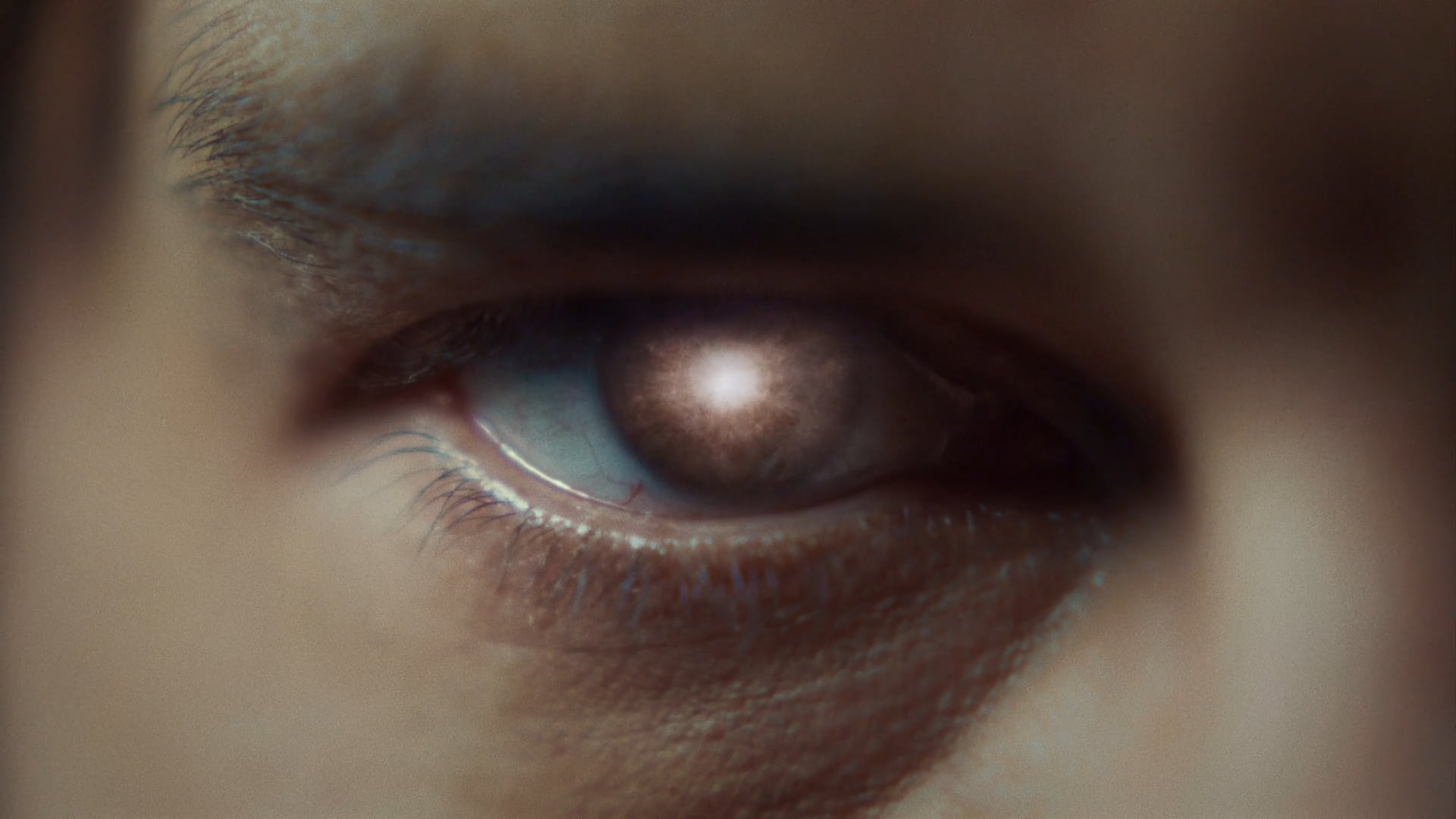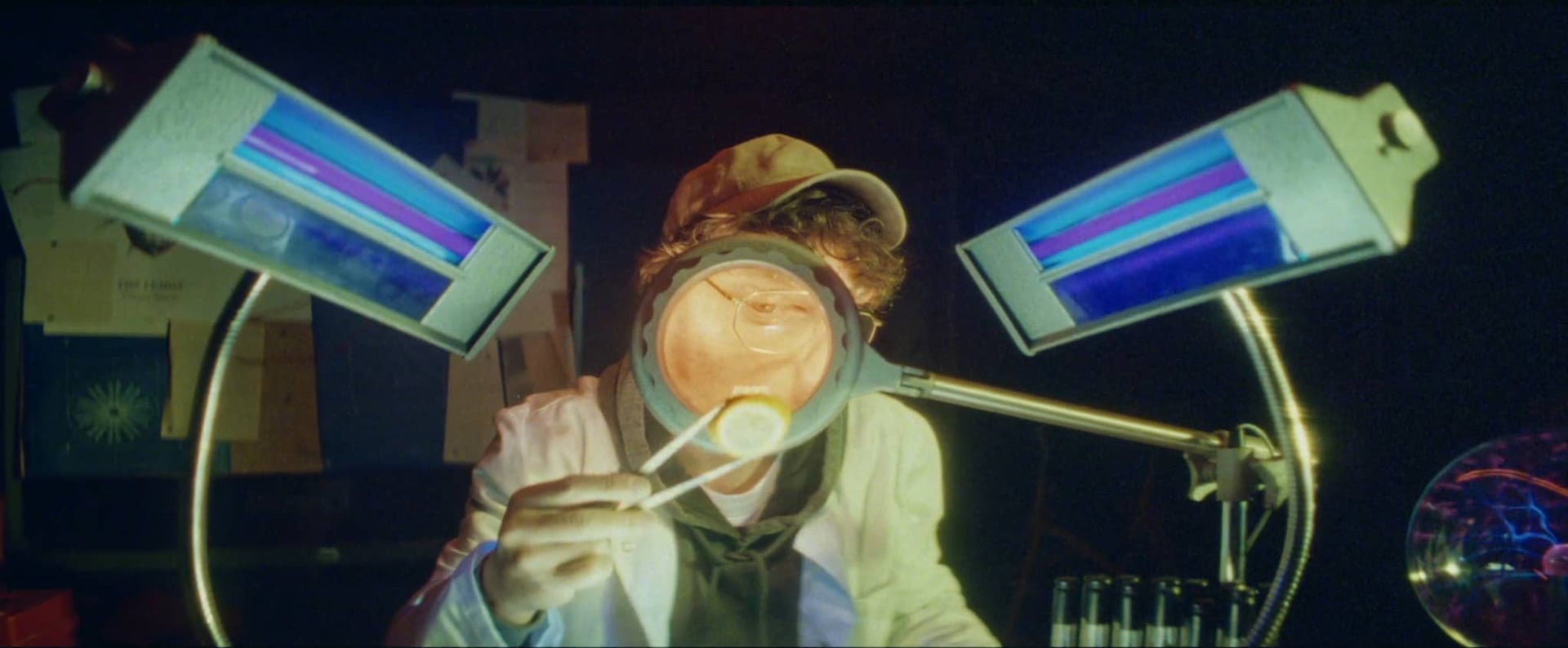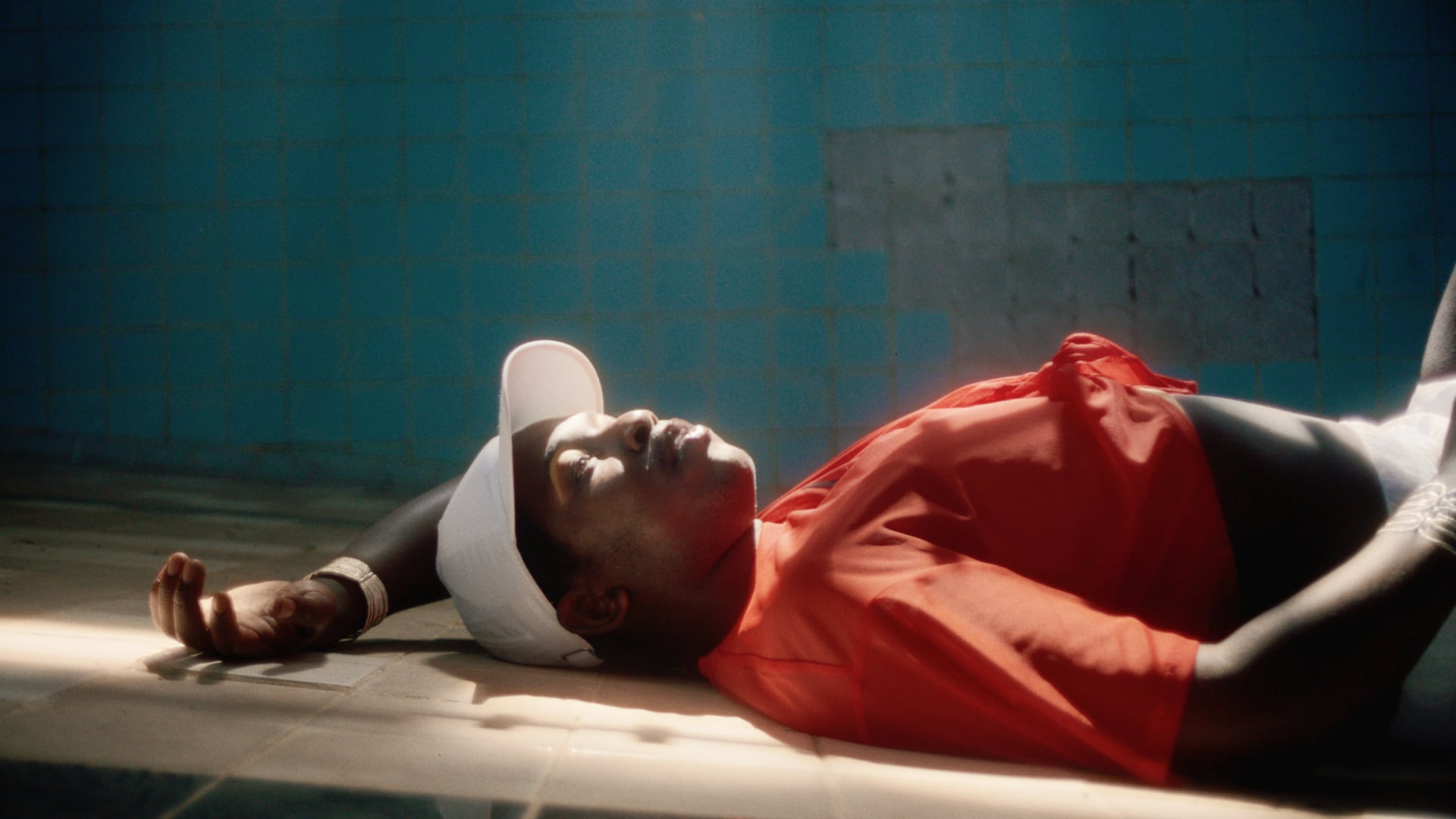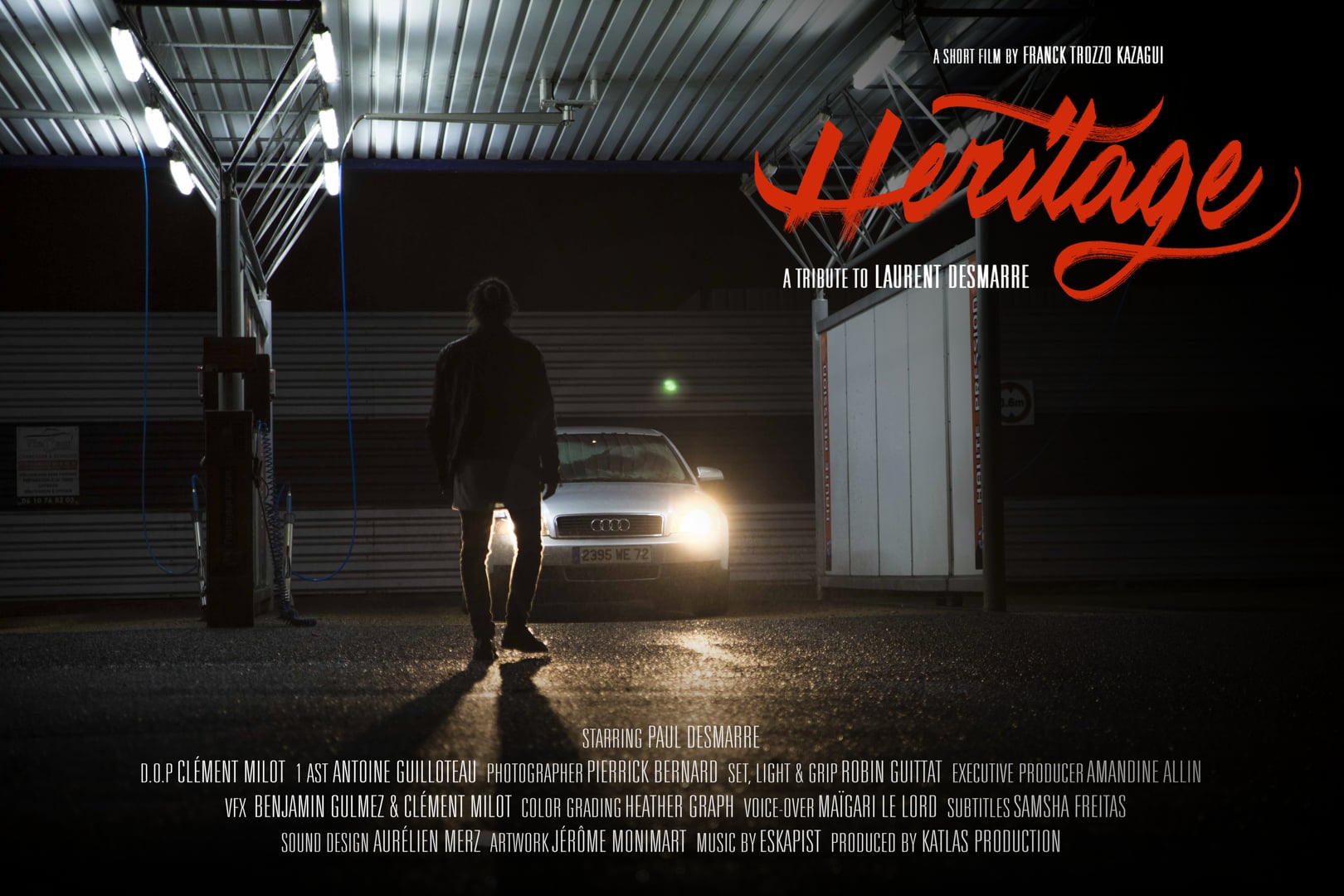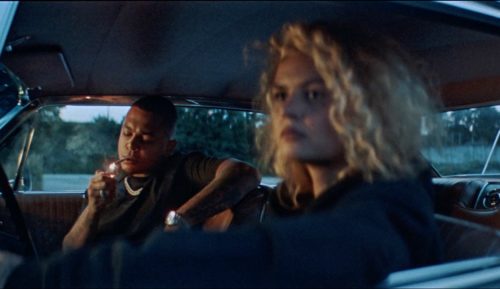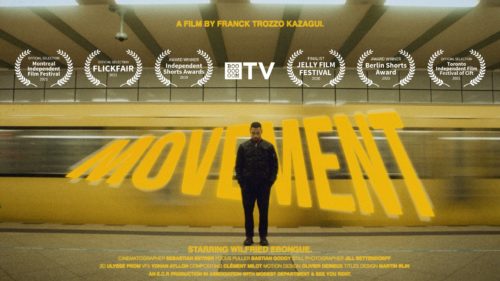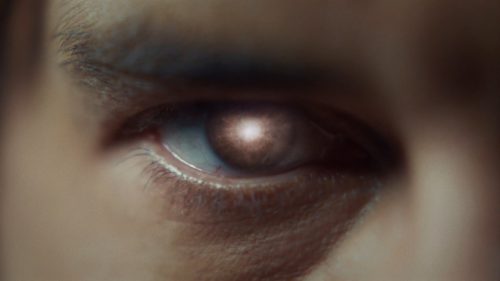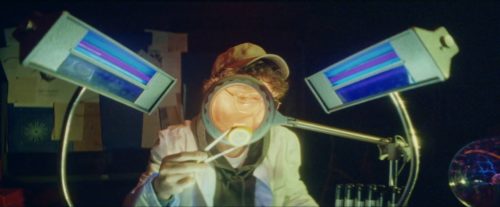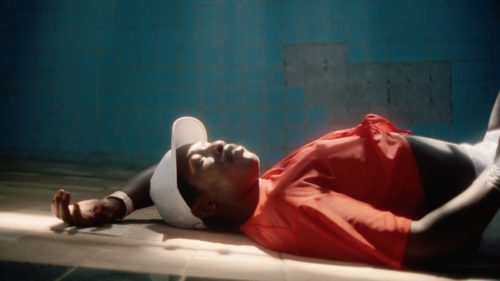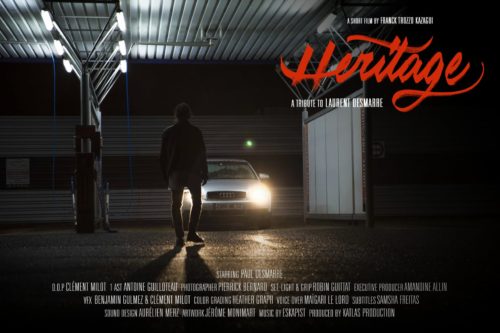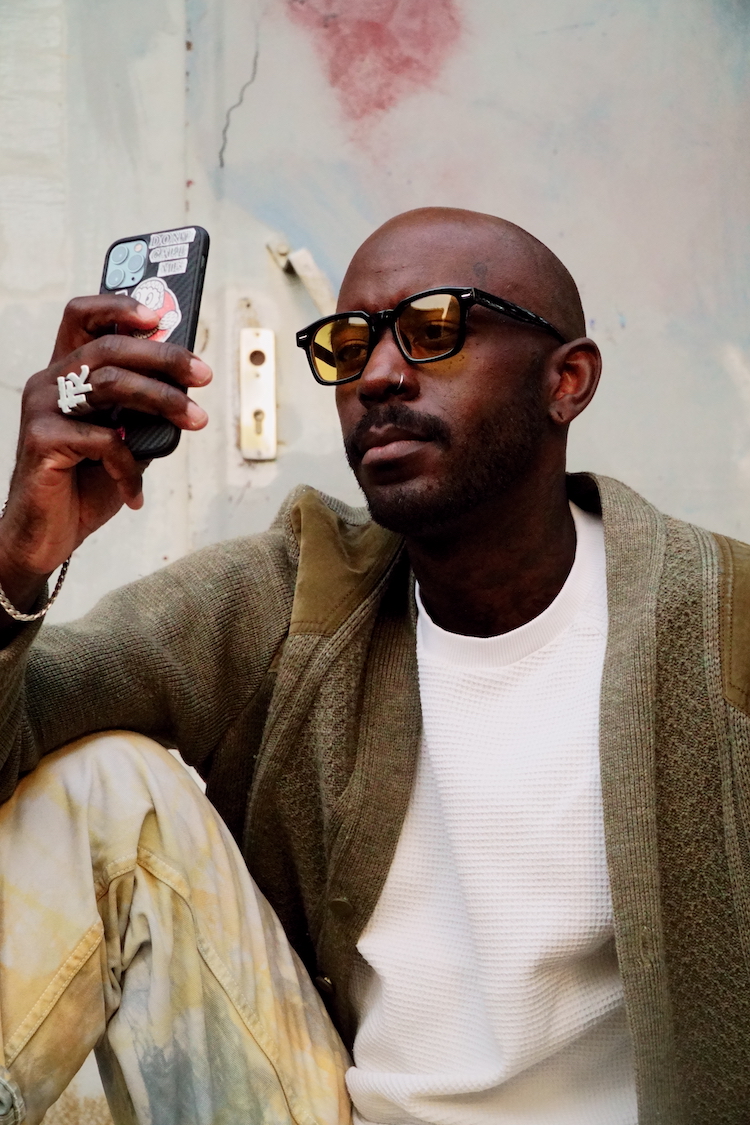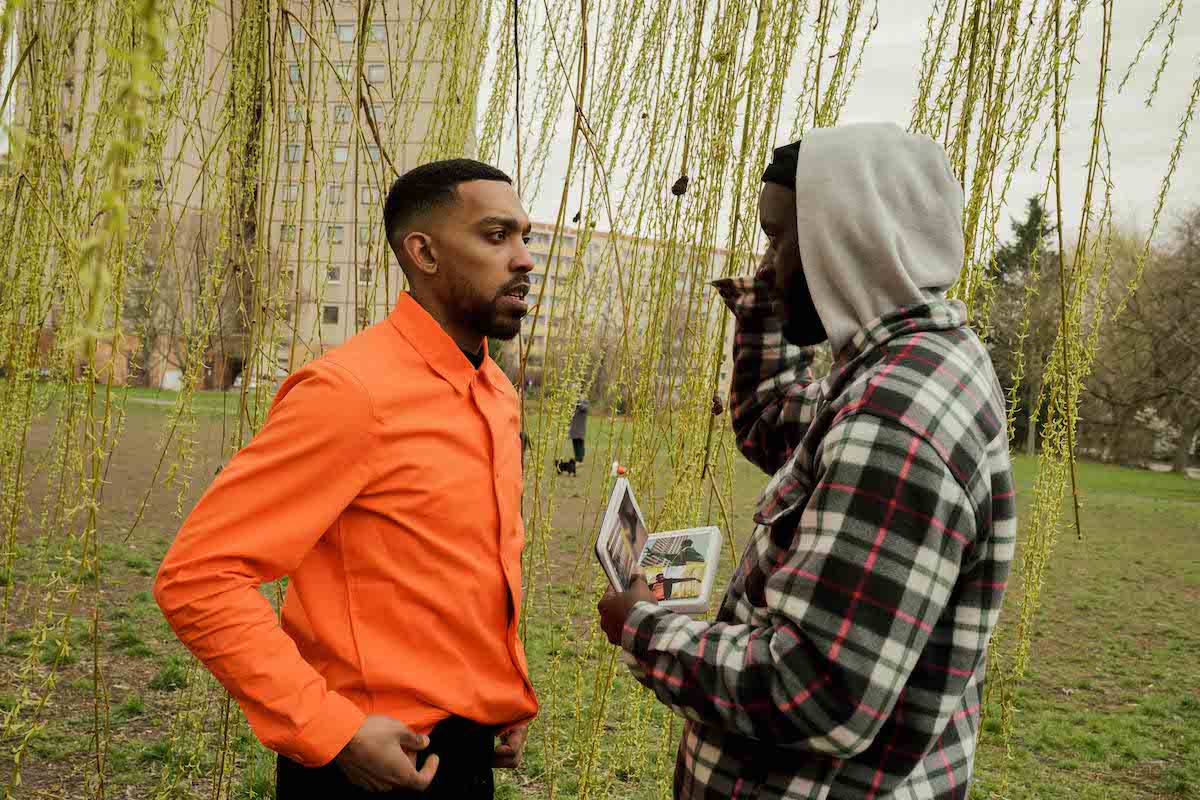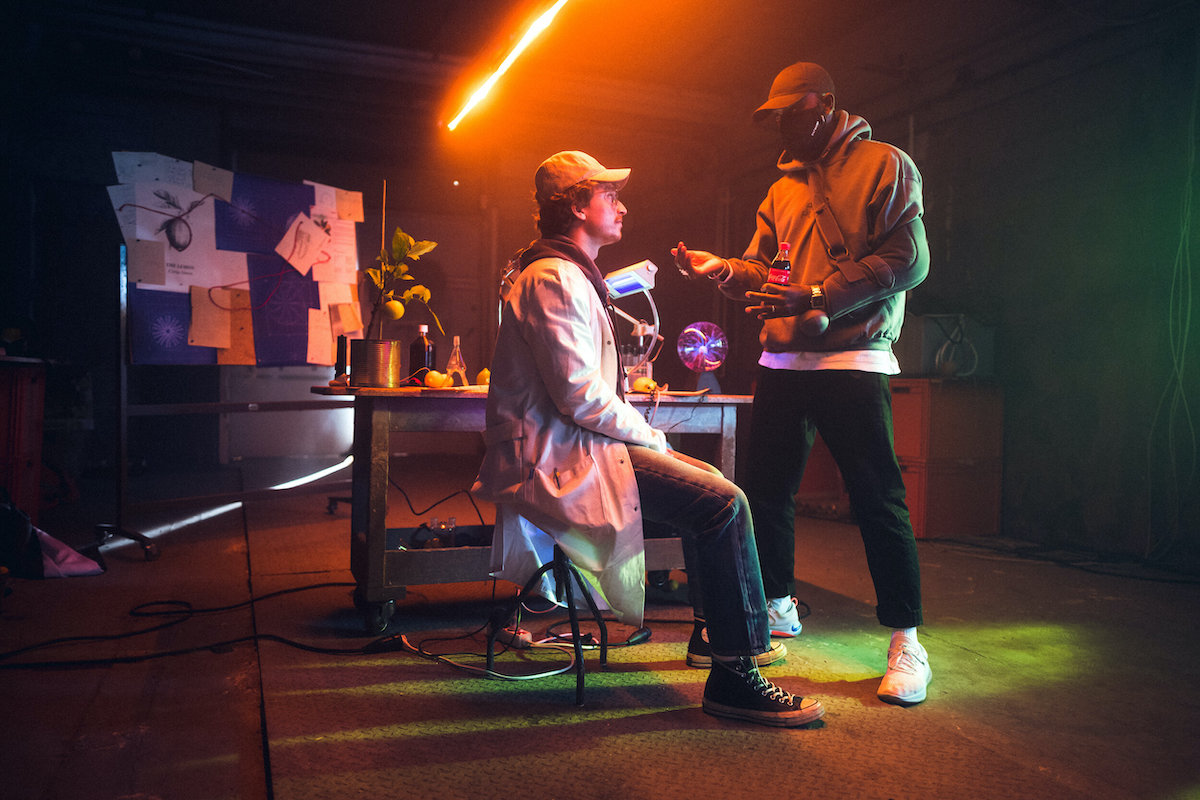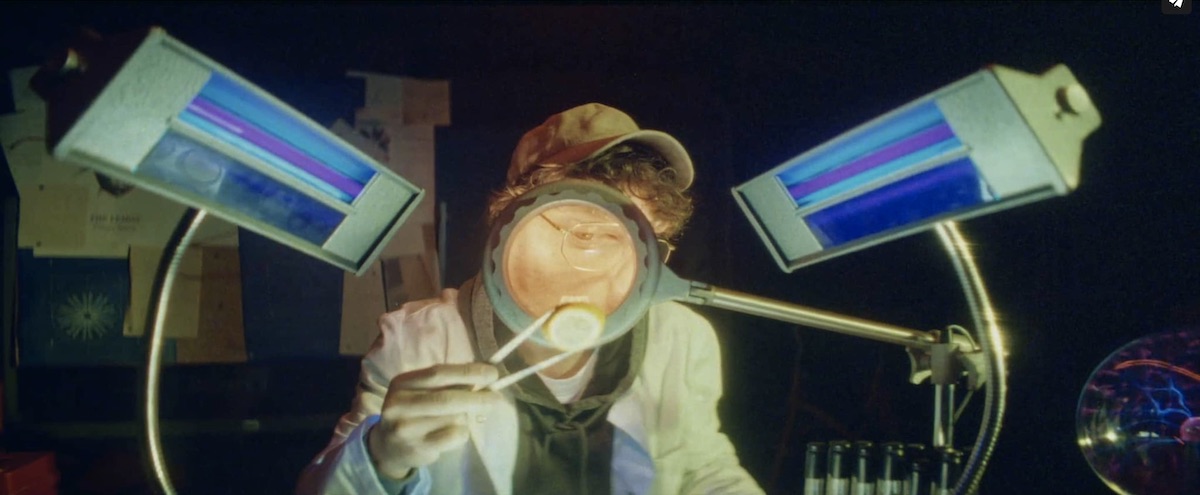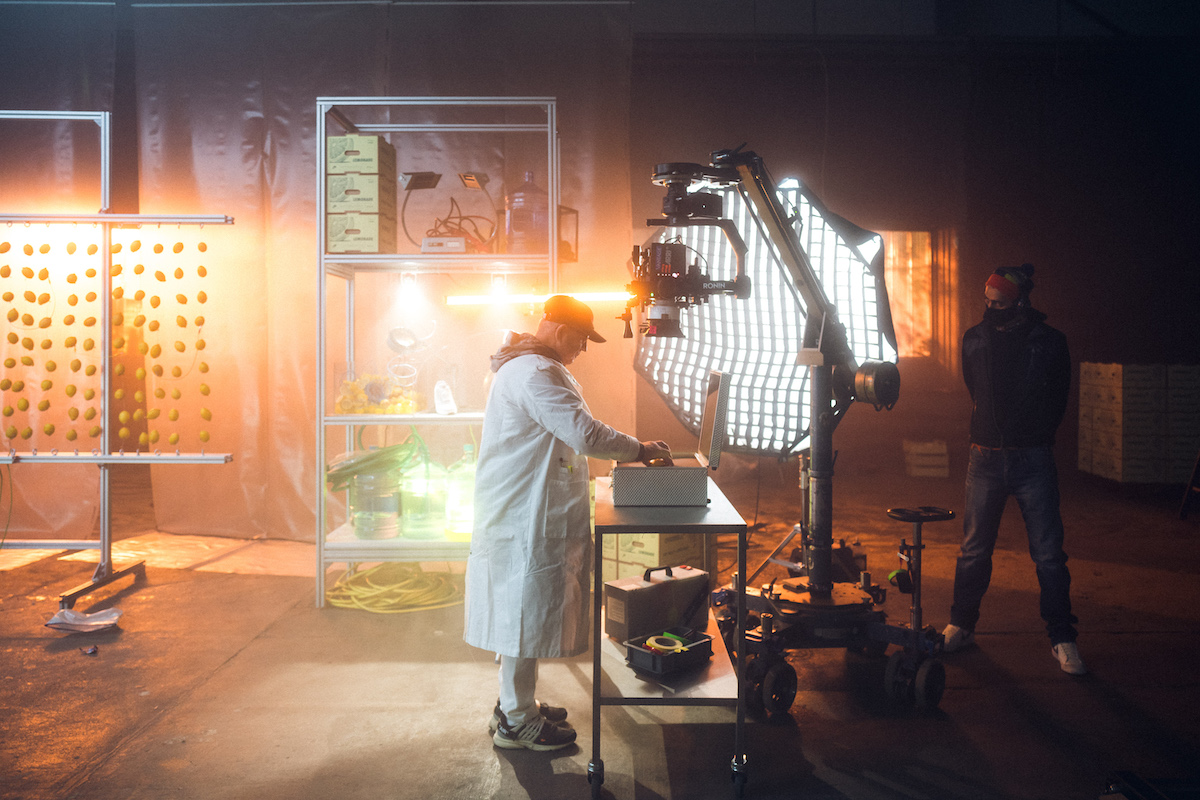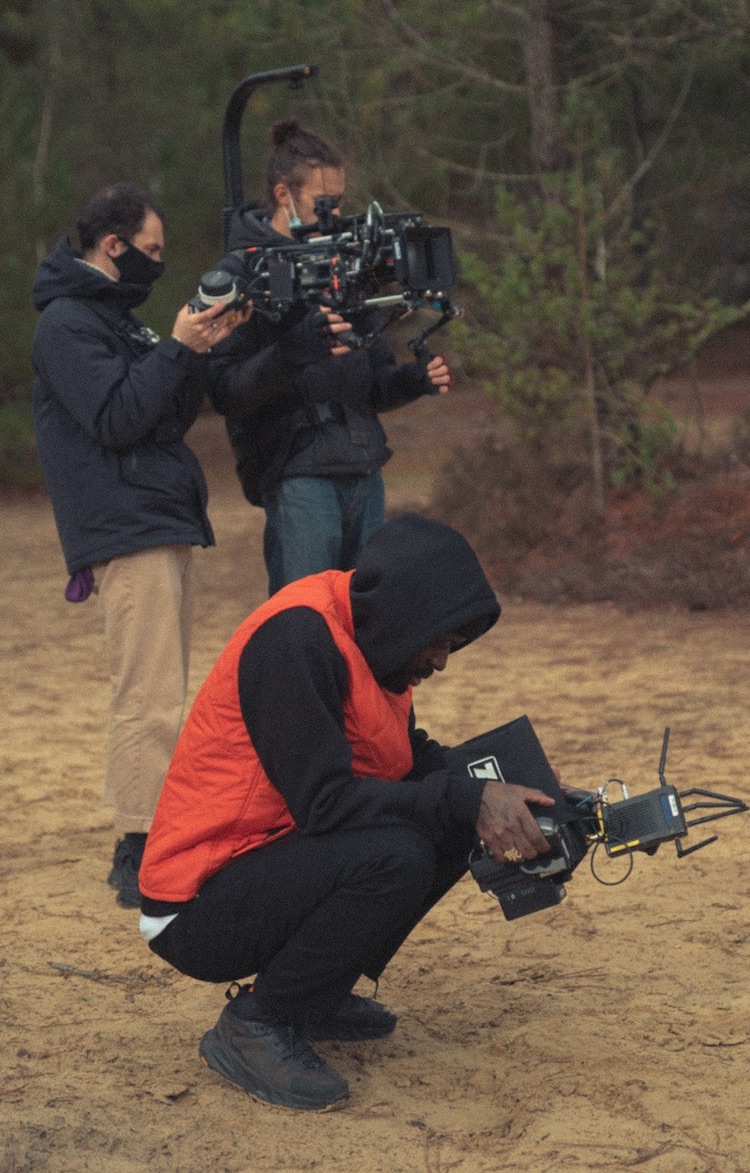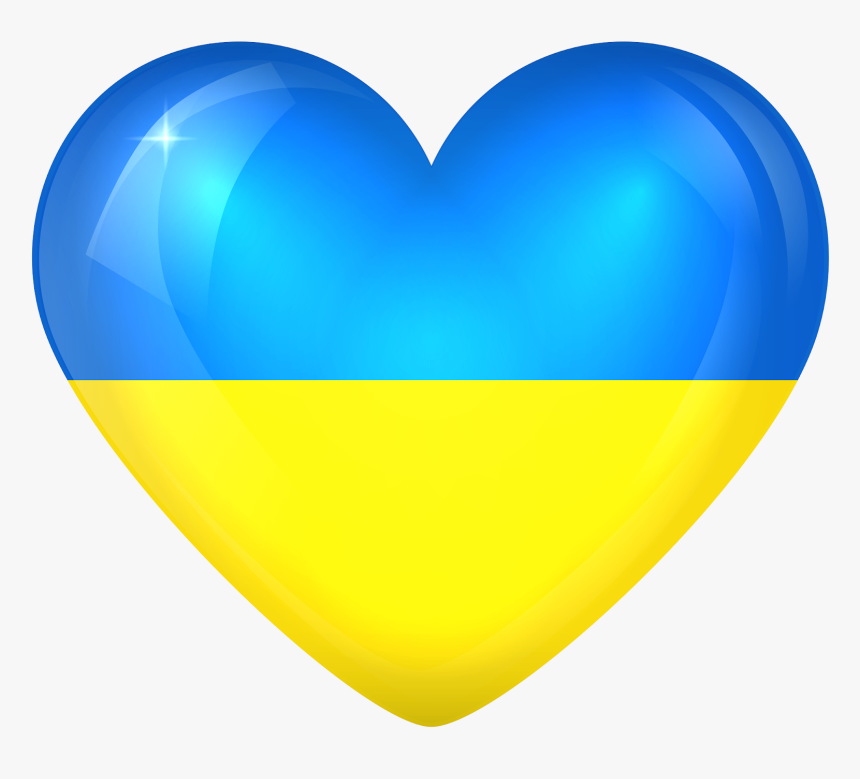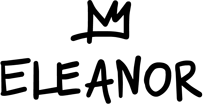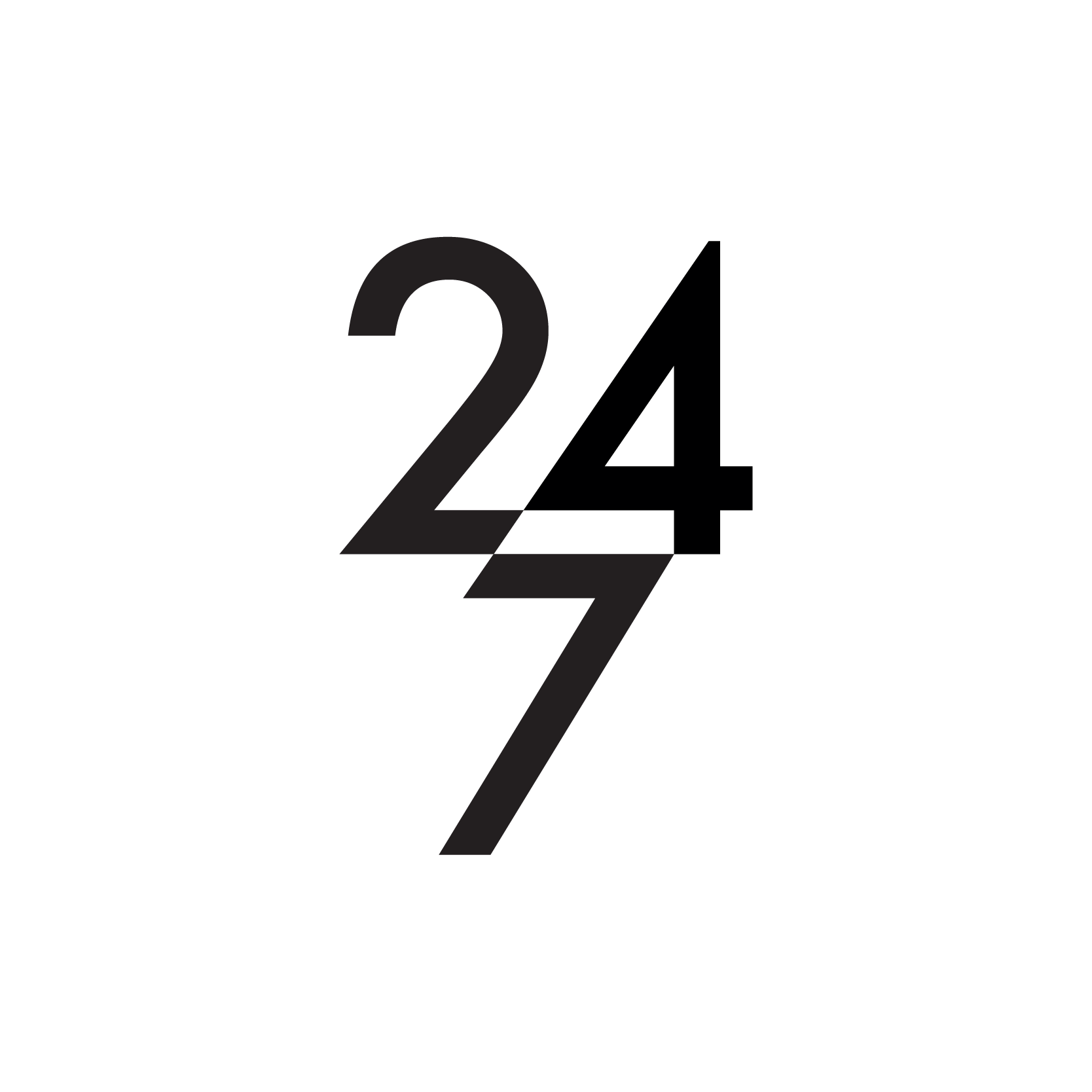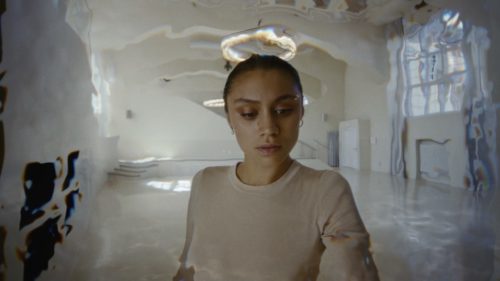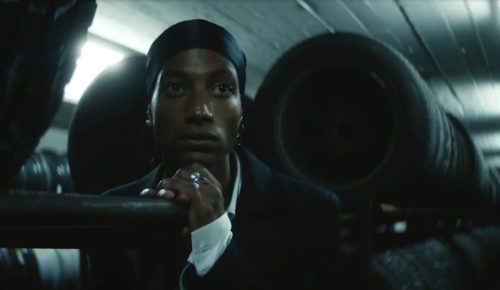Franck Trozzo Kazagui
You spent most of your childhood in Africa, returning to France when you were a teenager and becoming part of the skating community. How have these different cultural and lived experiences shaped your approach as a director?
Having such a diverse cultural background and experiences at an early age shaped me to have a wider vision of the world. I grew up being a constant outsider who needs to fit in new places by learning the language or the culture. People always think that I’m a quiet or shy person when we first meet, but most of the time I’m actually observing the way they dress, talk or move in order to understand them and get a rough idea of who they are.
I use that same approach with my work. I usually spend days on my own getting into the client’s brief and trying to find a connection and emotions related to my personal life. Other times I listen to a specific soundtrack when I’m scouting potential locations for the film. That way I try to make it my own and more authentic so people can relate to it.
As a self-taught director, when did you start getting interested in visual storytelling? What first motivated you to pick up a camera and start capturing moving images?
During my childhood I was raised by my grandmother: she always loved to read me stories and I always tried to create visual images that fit the stories in my head. I was first motivated to pick up a camera when I was a sponsored skater in my teenage years. My friend’s parents would drive us to skate competitions in different towns and we would take their Sony HI-8 or Canon XM2 camera to document the trips or our skating videos. After years working as a filmmaker and team manager in the skating industry, in 2016 I decided to change my career and commercial filmmaking came to my mind naturally.
Directing Movement, short film
Your debut passion project, Movement, is a hymn to the beauty and vitality of moving our bodies and showcases an impressive array of techniques. What inspired you to create a film about movement and was it important to make something that stood out from the crowd of ‘dance’ films? How did you approach casting for the central dancer?
Every year I self-produce a passion project through a collective I founded in 2017 called E.C.R (Explore, Create, Repeat). Dead Body, an unofficial Adidas campaign, was my first project in the commercial world. It won the VOTD award the same year and gave me the confidence to continue. In 2018 it was Heritage – a tribute to Laurent Desmarre, which is dedicated to my best friend’s father who passed away from cancer.
Movement was supposed to take place in 2019 under a different name, in a different city, and with a different cast – we had even shot some images but due to financial considerations, the project didn’t continue… A few months later, I started working in restaurants as a waiter while directing commercial jobs on the side to save money and bring this idea to life. When the plan to move to Berlin came to my mind after a short work trip, it was clear that I need to bring this film back to life here in Germany. At that point, I started working on a new script. I decided to add my personal experience from when I was on my way to the restaurant jobs. I always had my headphones with me in the subway and it helped me to transition into a different world. I wasn’t Franck the film director anymore, but Franck the waiter, and I wanted to add that personal part of me in the story.
Regarding the casting, Wilfred is a long-time friend from my hometown, Le Mans. For this film, I wanted to have that deep connection with my protagonist. He and I have both gone through some hard times as self-taught artists, trying to make our way in this world and we use that energy to set the tone of the story.
BTS, Nike
We love your work Powerwall for Nike and Overkill, the enjoyable tale of a mad scientist who harnesses the electrical power of lemons to create the ultimate training shoe. Did the shoot pose any unique challenges for you as a director? And just how many lemons did you get through?
I’m glad you loved this project. It was a unique experience to work on this project with Sunst Studio – those guys are fearless. The only challenge with this film was time. We had one day to shoot everything, and there were so many different roads to explore, but the final result is still great, especially with two non-actors as the main characters. I’m also thankful for the constant trust and freedom from Nike creatives in every project we create together, it is very rare in this industry.
I think we went through a thousand lemons or so. For the release of the sneakers, Overkill used the same lemons for a warm drink that they shared with homeless people in the streets with a special package that contained a blanket and scarf, and that was something I was proud to be a part of.
Nike, Overkill
You’re currently based in Berlin: how much are you influenced and inspired by the city and its culture? Where do you find inspiration?
Berlin is one of the places to be in Europe as a creative. There are so many talents from different industries and parts of the world, that it’s just impossible not to be inspired and influenced by the energy of this city.
I studied architecture when I was a teenager and it impacts the way I explore and see cities. It has always inspired my work. A stunning location that fits your story will always add an extra layer to your film.
BTS, Nike shoot
Alongside your personal projects and commercial work, you’ve also directed a docu-short for NOWNESS’s Raw Material series. Is that something you’re keen to do more of? What kinds of storytelling opportunities do you hope to tackle in the future?
The docu-short was something very special that really got me out of my comfort zone, to be honest. We exchanged ideas with NOWNESS and Thomas (the artist), and at first we wanted to have a speaking manifesto approach to the film but ultimately, we went for a voice-over to make it feel less commercial and more like a documentary journey.
Storytelling is something I want to explore more with my commercial work. It could be with dialogue or just images that tell the story itself. I’m keen to work on a feature film in the future but I don’t want to rush things. I want to move in the right direction, so for now I’m focusing on commercials where I can bring in visual storytelling and guide the viewers through the story with strong transitions and camera movement.
On Nowness, Thomas Vanz shoot
What are you working on at the moment?
Luckily, the past few months were crazy with work but after the release of my film for NOWNESS, I decided to take a step back from the film industry to reconnect with myself, work on my next personal projects and return to the film industry with a different perspective. Recently I have been pitching on some very interesting commercials with some of my reps but the current Covid situation has definitely had an impact and many jobs have been cancelled.
My next project, which will be released in September, is a film for Jacob Jonas The Company, and their ‘Films Dance‘ platform, a partnership with Somewhere Magazine that celebrates the dance community all around the world. I‘ll be working with Yin Yue, a choreographer from New York, and up-and-coming cinematographer Sebastian Beyrer, who was also behind Movement.
Interview by Selena Schleh
Franck Trozzo Kazagui website
